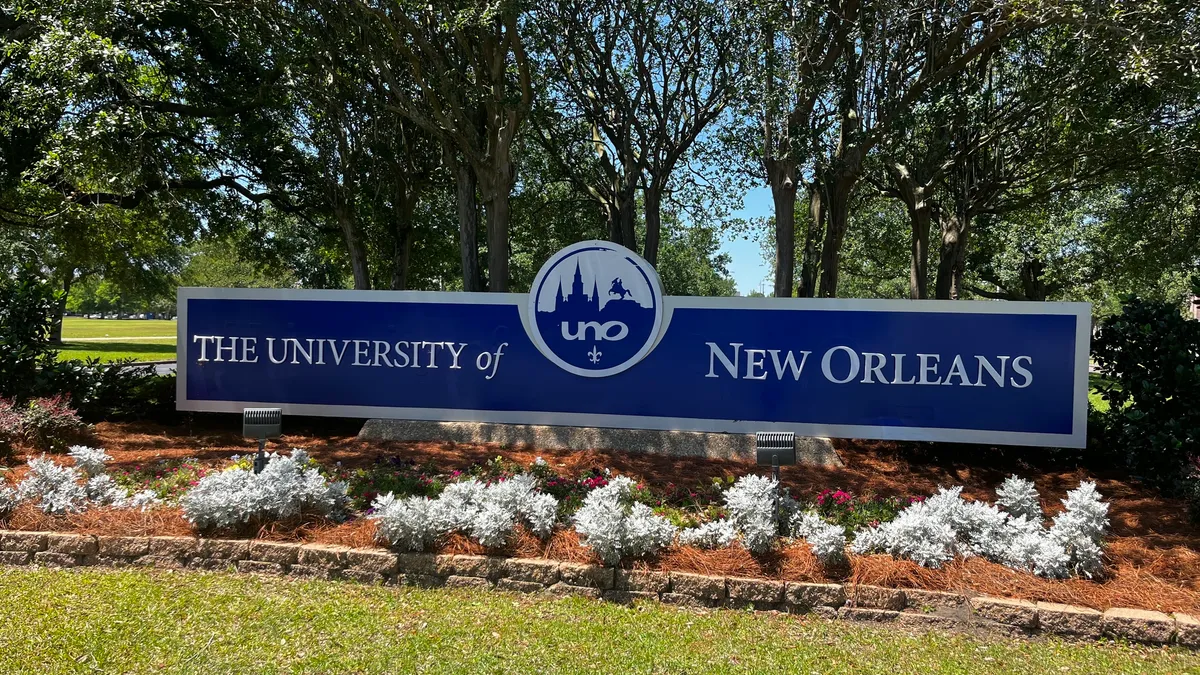Law schools may no longer have to require applicants to provide standardized exam scores including the Law School Admission Test under a recommendation being considered by the American Bar Association.
The ABA will vet the proposal, made by one of its committees, at a public meeting later this month, though it is still subject to several more layers of approval.
Dropping entrance exam mandates would represent a seismic shift in law schools’ long-standing admissions procedures. Top-ranked schools weigh a high LSAT score heavily when vetting applicants. Until November, it was the only admissions test the ABA explicitly allowed its recognized law schools to use.
The ABA proposal comes as a national campaign to demolish testing-related barriers for underrepresented college applicants has swept undergraduate admissions. Proponents of nixing LSAT requirements say doing so could similarly help diversify applicant pools.
However, shattering an admissions culture largely centered on LSAT scores could prove challenging. In recent years, more than 100,000 hopefuls have taken the LSAT annually — and law schools wouldn't have to abandon the test under the proposal. The ABA also attempted to end its standardized assessment rules in 2018, but it backed down amid concerns that removing them would disadvantage vulnerable applicants who could validate their academic prowess through an objective measure.
What is the ABA doing?
The ABA’s Strategic Review Committee has recommended the organization — which accredits about 200 U.S. law schools — change its standard requiring a “valid and reliable” admissions exam.
The LSAT was the de facto choice to meet this demand, though some colleges experimented with allowing the Graduate Record Examination instead. The ABA in November greenlit all of its law schools to use the GRE.
Standard 503, as it’s known in the ABA’s rulebook, has long come under scrutiny, drawing accusations it obstructs law school candidates who might not meet the traditional profile.
Research published in the New York University Law Review in 2020 found the policy in recent decades morphed into “a significant barrier to entry with disparate negative impacts on” students who are from racial minority groups, women, low-income applicants and those with disabilities.
Another study, appearing in Florida International University's law review in 2019, said that the average LSAT score for Black students was 142, versus 153 for White and Asian test-takers. The maximum score is 180.
The ABA committee said in a public memo that moving away from a mandate would eliminate “some of the challenges inherent in determining which tests are in fact valid and reliable for law school admissions.” It noted the ABA remains the only accreditor among those for law, medical, dental, pharmacy, business and architecture schools still requiring an admissions test.
On May 20, one ABA governing body, the Council of the Section of Legal Education Admissions to the Bar, is scheduled to decide whether to open the proposal to public comment. The committee would then examine this feedback and debate whether to suggest revisions, Bill Adams, managing director of ABA accreditation and legal education, said in an emailed statement. Another governing panel, the ABA House of Delegates, would also review the proposal, but the final decision rests with the council, Adams said.
A timeline for a final policy change is uncertain.
What are people saying?
This move is significant on the equity and access front, according to Bob Schaeffer, executive director of FairTest, an organization advocating for minimal reliance on standardized exams.
That’s because the ABA and the Law School Admission Council, or LSAC, which administers the LSAT, “have been among the most resistant to changing testing policies of all the gatekeepers to higher education,” Schaeffer said in an email.
Most colleges, about 1,830, are not requiring potential undergraduates to submit SAT or ACT test scores for fall 2022, according to FairTest. It’s a vastly different admissions landscape than several years ago when only a handful of colleges were test-optional, but practices were overhauled during the pandemic.
LSAC, meanwhile, argued in an emailed statement that test-optional policies “may often work against minoritized individuals” in law schools. The organization said it hoped the ABA will carefully consider these issues.
“We believe the LSAT will continue to be a vital tool for schools and applicants for years to come, as it is the most accurate predictor of law school success and a powerful tool for diversity when used properly as one factor in a holistic admission process,” the statement said.
However, what the ABA considers a reliable test has remained “somewhat of an elusive idea,” said Leo Martinez, chair of the ABA Council of the Section of Legal Education Admissions to the Bar and dean and professor emeritus at the University of California, Hastings College of the Law.
Continued use of the LSAT is rooted in tradition, Martinez said, but there’s “concern it doesn’t yield the best results.”
Martinez doesn’t expect a broad contingent of law schools to discard LSAT requirements even if the ABA changes its policies. Law schools have license to weight LSAT scores however they liked in admissions, but Martinez said he wasn't aware of any that made the scores a nominal factor.
The LSAT’s sticking power is evident. For instance, prior to ABA’s formal approval in November allowing use of the GRE, about 70 law schools accepted GRE scores — but only a fraction of the fall 2020 ABA law school class, less than 1%, were admitted with GRE scores.
“It’s not likely to move substantially over the next few years,” Martinez said. If law schools develop better admissions processes outside of the tests, those may be replicated broadly, Martinez said.
But Andrew Strauss, dean and professor at the University of Dayton School of Law, believes the change would be meaningful.
Law schools have drawn on two main criteria as admissions factors: undergraduate GPA and LSAT scores. No longer mandating the latter would lead to some schools reinventing their processes, Strauss said.
He said schools could drill down on GPAs, more closely examine pre-law courses or conduct interviews more frequently.
“It creates a very different kind of climate around this,” Strauss said.























